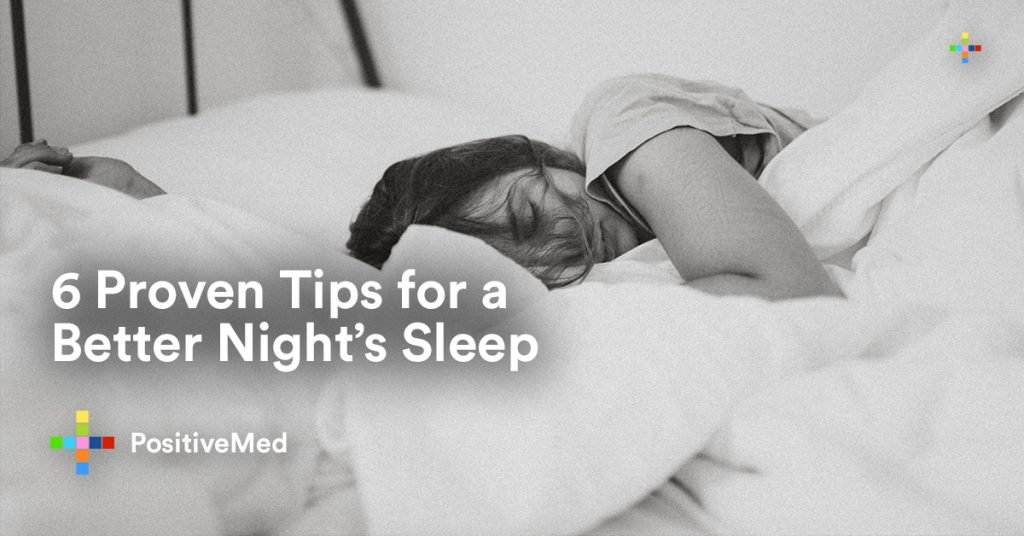How you feel during your waking hours is almost always directly affected by the sleep you had the night before. For good reason: sleep plays an important role in our physical health and emotional wellbeing. A lack of sleep can cause increased blood pressure, fatigue, obesity, and even depression, while adequate sleep can result in a whole host of physical and mental benefits. Considering this is something that takes up almost a third of our lives, sleep is a pretty big deal. And while many of us dream of getting that elusive eight hours of shuteye between hectic work and social lives, doing so is not only possible but easier than you might think. Below we’ll look at some of the ways to ensure you catch the appropriate amount of zees.

Invest in a good mattress
This is the foundation of a good night’s sleep, and surprisingly one that many people overlook. A good mattress should reduce pressure points on your body, allowing blood to flow more easily and result in less tossing and turning during the night. It’s good to go for something firm that has a lot of support, but not something that is too hard as to be uncomfortable. Something made from memory foam is a good way to go. This is something you don’t really want to skimp on, as a good mattress is something that will last years and is prerequisite to being well-rested.
Pay attention to your diet
Having a good diet and eating healthily is not only a good way to stay in shape, but it’s vital for falling asleep easily and enjoying uninterrupted sleep throughout the night. Eating nutritious foods is key to maintaining a healthy weight, which in turn translates to breathing easier and a reduced risk of conditions such as sleep apnea. When you eat is also an important factor, and meals should generally not be eaten a few hours before bed. Cutting down on alcohol and stimulants such as caffeine will also improve the quality of your sleep. Although it might be tough to get out of bed without an espresso or cup of black, once you’ve broken the cycle and you’re getting quality sleep, you’ll find yourself more energized without stimulants.
Maintain an exercise schedule
It’s proven that regular physical activity can promote better sleep. Exercising vigorously speeds up your metabolism, elevates your body temperature and stimulates hormone production. One thing to take into consideration is the time at which you decide to schedule your workouts. Exercising too close to bed time can get you pumped up and actually make it more difficult to fall asleep. It’s therefore recommended to exercise at least three hours before you decide to hit the hay.
Turn off your phone and other screen devices
Melatonin – a hormone that helps regulate your sleep-wake cycle – is secreted by your brain when it’s dark, and this is ultimately what makes you sleepy. Your brain secretes less melatonin when it’s light, thereby making you more alert. It’s therefore prudent to avoid bright screens closer to your bedtime. The reason for this is that the blue light from your tablet, phone or laptop can be disruptive to the melatonin cycle. You can turn the brightness down, or apply a special blue light filter to your devices, but ultimately the best way is to avoid looking at screens altogether. If you’re the type of person that needs something to do before bed, try reading a book or listening to some music. They’re both soothing activities which will help you wind down.
Be consistent
Currently, the recommended sleep range for an adult is between 7-9 hours. However, this may vary to some degree dependent on the individual. It’s therefore important to allocate a time for sleep every night, and stick strictly to this schedule. Try to go to bed and wake up at the same time every day, while limiting the difference in sleeping times on the weekend. It’s this consistency that will in effect “set” your body clock so that your body is aware of the cycles during which you should be awake and asleep.
Optimize your sleep environment
This means creating a room that is ideal for sleeping, and makes cultivating sleep easy. Generally this means a cool, dark and quiet environment. Put up some heavy curtains to block any street lamps or early-morning sunlight (and also to dampen any external sounds), and if you can, install some sort of thermal control to regulate the temperature so it’s neither too hot nor too cold. Also make sure that you only using your bed – or sleeping environment in general – for sleeping. This way your body will always associate your bedroom as the place where you should go to sleep, and make it much easier to doze off when you do turn in for the night.






